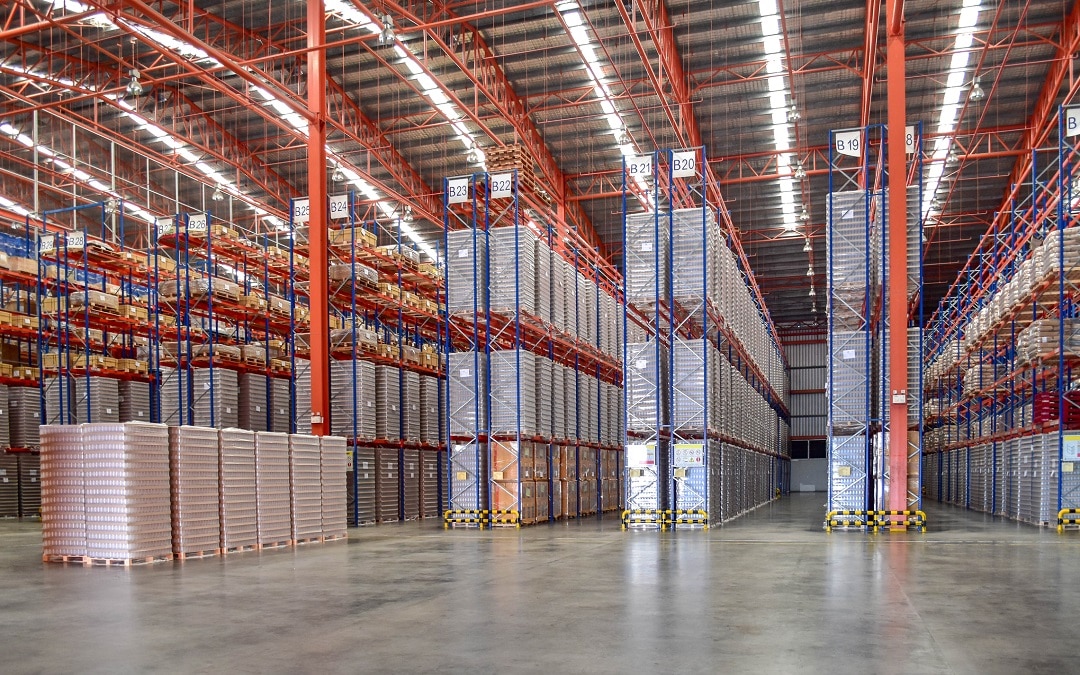With FBA, your products can qualify for Amazon Prime, which is a significant advantage in attracting customers who prefer fast and free shipping. Prime customers tend to buy more frequently and may be more loyal to products that offer Prime shipping. FBA allows you to store your inventory in Amazon’s fulfilment centres located across the EU. This enables faster delivery times to customers within the EU compared to shipping from the UK, reducing transit times and improving customer satisfaction. But in storing inventory in Amazon EU warehouses, you have additional VAT compliance to deal with, as storing inventory in any EU country triggers a VAT obligation in that country. That is despite the fact that Amazon will be responsible for accounting for VAT on your B2C sales in the EU. If you are just dipping your toe into the European market, this can be an expensive and time-consuming burden.
The Role of European Fulfilment Network (EFN) in Enabling FBA across the EU
EFN or European Fulfilment Network enables you to use Amazon’s FBA services to fulfil orders across Europe, including from the UK, thus avoiding the need to store inventory in other countries. If you are already an FBA user, then you just need to follow these simple steps:
- Log in to your Amazon Seller Central account.
- Go to the “Settings” or “Settings & Preferences” section.
- Find the option for “Fulfilment by Amazon” settings.
- Look for the option to enable EFN or European Fulfilment Network.
- Follow the prompts to enable EFN for your listings.
After enabling EFN, you may need to update your shipping settings to ensure that your products are available for sale in the EU marketplaces. You can specify shipping rates and delivery times for each marketplace.
The Impact of Import VAT and Duties for Orders over €150
For any B2C sales over €150 (excluding shipping charges that are charged separately), the customer is required to become the importer of record, and they will need to pay any necessary import VAT and duties. An estimate of this amount will be shown to the customer during the checkout process. The same applies to all B2B sales. This doesn’t necessarily provide the best customer experience. For B2C orders of less than €150, Amazon will account for the VAT.
Best Practices for Success
When using FBA (Fulfilment by Amazon) to fulfil orders from the UK into the EU, there are a number of best practices to consider:
- Ensure Compliance with EU Regulations: Make sure your products comply with EU regulations and standards, including labelling, safety requirements, and any specific regulations applicable to your product category.
- Optimise Inventory Management: Monitor your inventory levels in Amazon’s fulfilment centres to ensure you have sufficient stock to meet demand. Use Amazon’s inventory management tools to forecast sales and replenish inventory as needed.
- Set Competitive Pricing: Research the pricing of similar products in the EU marketplaces and adjust your prices accordingly to remain competitive. When setting prices, consider factors such as currency exchange rates, local taxes, and shipping costs.
- Optimise Listings for EU Marketplaces: Customise your product listings for EU marketplaces by translating product titles, descriptions, and bullet points into the local languages. Use relevant keywords and optimise your listings to improve visibility and conversion rates.
- Monitor Performance Metrics: Monitor key performance metrics such as sales, conversion rates, and customer feedback. Use Amazon’s analytics tools to identify trends, track performance, and make data-driven decisions to optimise your business.
- Provide Excellent Customer Service: Offer responsive customer support to promptly address any inquiries or issues from EU customers. Utilise Amazon’s customer service tools to manage customer communications and provide a positive buying experience.
- Opt for Multi-Channel Fulfilment: Consider using Amazon’s Multi-Channel Fulfilment (MCF) service to fulfil orders from other sales channels, such as your website or other online marketplaces, using your FBA inventory in the EU.
- Review cost efficiency: As order volumes increase, you should review the cost efficiency of fulfilling orders from the UK. Biting the bullet on EU VAT registrations may be the most cost-effective solution if fulfilment costs are lower because you can fulfil from warehouses closer to the customer. Delivery times will also improve.
Conclusion
For e-commerce businesses looking to capitalise on the opportunities presented by cross-border trade in the EU market, EFN provides a scalable and efficient solution that allows for seamless expansion while mitigating logistical challenges and compliance risks. With the support of experienced e-commerce accountants specialising in international tax and accounting matters, businesses can navigate the complexities of cross-border transactions with confidence, ensuring compliance with VAT regulations and optimising tax strategies to maximise profitability.

